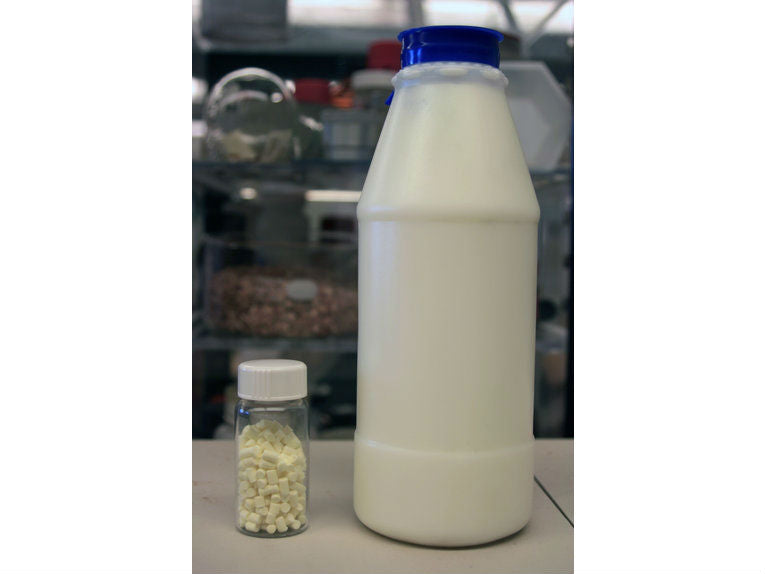Scientists have created a capsule that eliminates radioactive contamination from food and drink. The capsule, which is effective against 15 radioactive substances, can be used on water, fruit juices, milk and more, the National Meeting of the American Chemical Society (ACS) has been told.
The San Diego meeting was told by Dr Allen Apblett, who led the research team, that the process could not only be used in individual homes but also by large food processing companies.
He says, "We repurposed and repackaged for radioactive decontamination of water and beverages a tried-and-true process that originally was developed to mine the oceans for uranium and remove uranium and heavy metals from heavily contaminated water.
"The accident at the Fukushima nuclear plant in Japan and ongoing concerns about possible terrorist use of nuclear materials that may contaminate food and water led us to shift the focus of this technology."
The technology could be used to combat nuclear terrorism or disasters such as the one in Japan's Fukushima plant. It can also combat lead, arsenic, cadmium and other metal contaminants from water or fruit juice, says the Oklahoma State University professor.
The secret to the process is miniature metal oxide nanoparticles, so small that hundreds could fit on a pinhead, which react with the radioactive materials and drag them from solutions.
The nanoparticles take up radioactive actinide metals, including actinium, curium, plutonium and uranium, plus other radioactive substances such as lead, arsenic and strontium.
The nanoparticles could come inside a capsule, similar to many of today's medicines, which would be dropped and stirred into the contaminated liquid, where it would attract the radioactive substances. Once the capsule was taken out, the liquid could be safely consumed.
When tested in the laboratory, the technology removed radioactive materials and other unwanted substances to levels that were so small, they could not be detected.
The first commercial uses of the capsules could be in taking away traces of lead radiostrontium and cadmium from supplements for calcium diets. It could also help purify water or food containments with heavy metals.
The research received finance from the Oklahoma Economic Development Generating Excellence Program.










